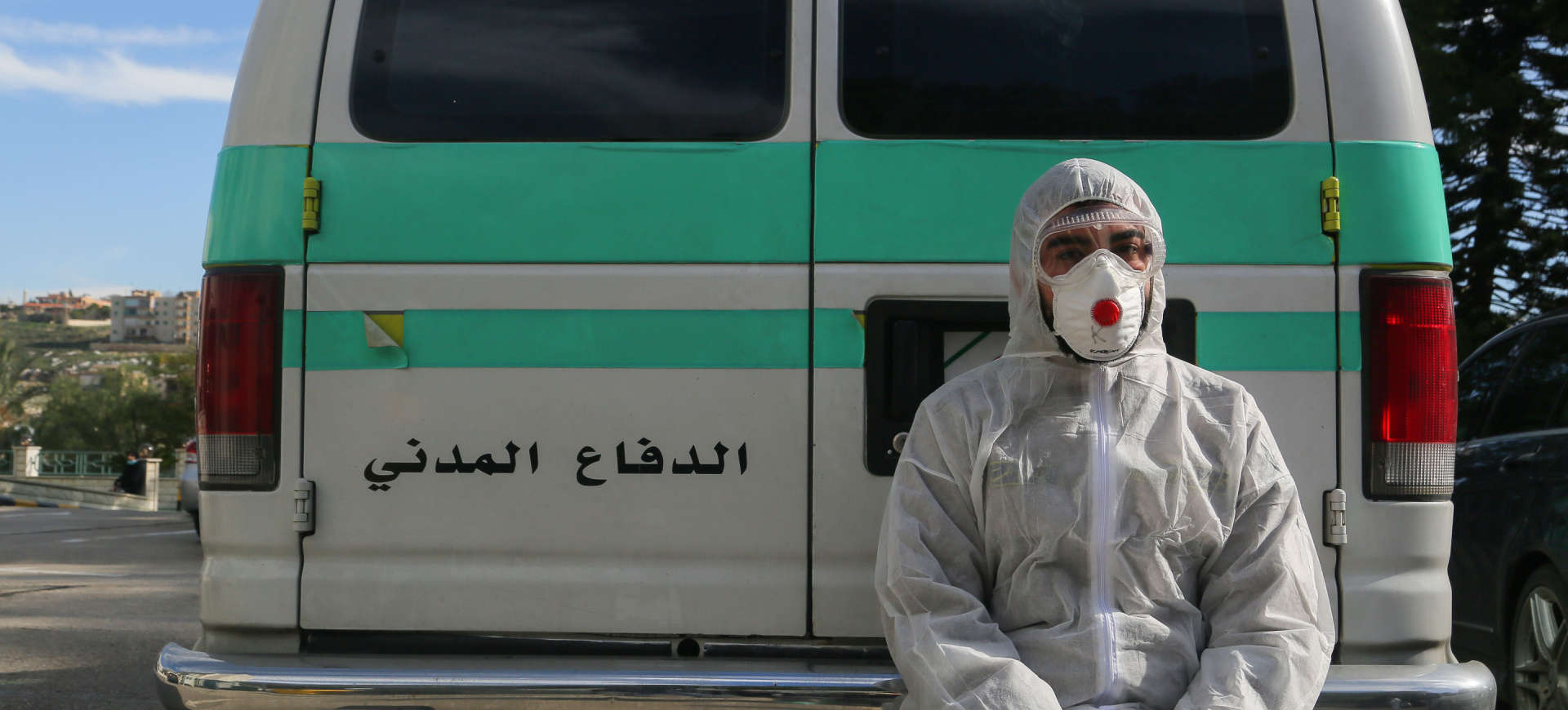Lebanon: reform and sustainability
Lebanon has recently faced one of its most tumultuous times, which has in part triggered a shift in the pattern of infectious diseases. Now, the country is working on its response to climate change and health challenges, with reform and sustainability at the heart of plans
Climate change stands as a predominant and rapidly escalating threat to public health. Its impacts are most evident in countries already wrestling with health and socio-economic challenges. In countries engulfed by multiple, complex crises, health systems encounter heightened strain. This strain is magnified by the cumulative effects of climate change, worsening environmental conditions and migration.
Lebanon, of late, has faced one of its most tumultuous times, characterised by an acute economic crisis, political unrest and social upheaval. The Lebanese currency has plummeted over 90% in value, and a staggering 80% of households now endure multidimensional poverty. The World Bank classifies Lebanon’s economic downturn among the 10 most severe global economic crises since the 19th century. An exodus of top-tier professionals, challenged healthcare access and devastating out-of-pocket health expenditures have become alarmingly common. These crises have accentuated the pre-existing inefficiencies within the healthcare system, thereby compromising the response to escalating healthcare demands of a growing population. As a result, equitable care access, especially for the marginalised, has become an uphill battle. Tragically, the health advances made over decades have rapidly regressed, leading to the deterioration of numerous health metrics.
Triggered by poverty, transnational movements, deteriorating environmental conditions and infrastructural decay, there has been a notable shift in the patterns of infectious diseases in Lebanon. Alarmingly, pathogens such as cholera, once eradicated from the country, resurfaced in 2022, instigating a significant outbreak. This re-emergence underscores the dire need for a holistic strategy. Such a strategy would encompass the strengthening of health systems and disease surveillance, and would also encompass initiatives aimed at tackling the root causes, such as poverty alleviation, sustainable infrastructure development (especially in water and sanitation) and measures for climate change mitigation and adaptation. Lebanon’s rapid containment of the cholera outbreak was a testament to a multi-pronged approach, partnership, coordination and multisectoral collaboration.
Immense pressure on health care
Concurrently, Lebanon’s energy crisis has exerted immense pressure on all sectors, including health care. Amid challenges such as acute electricity shortages and soaring fuel costs, the operationality and very existence of healthcare facilities are at stake. Consequently, the urgency for sustainable and climate-adaptive healthcare reforms has escalated. It is heartening to note significant progress in integrating renewable energy into public hospitals and primary healthcare centres, thanks to the concerted efforts of the Lebanese government, international collaborators, funding agencies and local communities.
The recent launch of the Sustainable Energy Strategy for the Healthcare Sector by the Ministry of Public Health epitomises a commitment to a transformative shift towards green energy utilisation and production. The strategy promotes the adoption of solar panels, wind turbines and energy-saving technologies, ensuring a consistent, eco-friendly energy source for healthcare institutions. Using renewable energy, healthcare facilities can uphold critical services, diminish their environmental impact and reinforce climate change mitigation endeavours. Successful strategy implementation can potentially lead to a 15%–30% reduction in electricity consumption by public hospitals and a 50% cut in thermal energy demands. Achieving these targets will streamline operating costs, allowing funds to be redirected to more pressing healthcare needs. Furthermore, Lebanon’s pledge to cut greenhouse gas emissions by 30% by 2030 hinges on the amplification of its renewable energy usage.
Embracing telehealth offers an eco-friendly solution, reducing carbon footprints, especially in densely populated regions like Beirut. By curtailing unnecessary commutes to healthcare institutions, telehealth contributes to enhanced air quality and reduced traffic congestion. This approach also lessens medical waste production, addressing another challenge faced by the health sector. Additionally, given the alarming rate of healthcare professionals departing Lebanon, telehealth serves as a bridge for global collaboration and knowledge exchange.
A new National Health Strategy
The Ministry of Public Health’s comprehensive five-year National Health Strategy: Vision 2030 delineates the collective vision to address immediate and long-term health priorities, including those stemming from climate change and environmental degradation. Five pivotal components form the backbone of this strategy: governance, health promotion and disease prevention, health security, universal health coverage, and health system resilience. A prime objective is to counteract climate change impacts on the healthcare sector by forging sustainable strategies and reforms in collaboration with both local and international partners.
In its commitment to universal health coverage, the Sustainable Development Goals and the directives from successive United Nations climate change conferences, the Lebanese Ministry of Public Health emphasises the convergence of public health and climate. Prioritising renewable energy and climate resilience remains integral to these commitments. The end goal? Carving a healthier, sustainable future for the Lebanese people.












